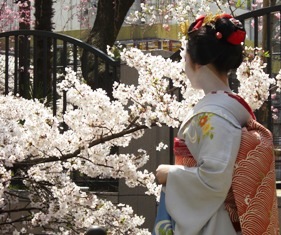JICA Volunteers in Palau
◆Alii from Palau!
Mariko Noike
JICA Volunteer
Belau National Hospital
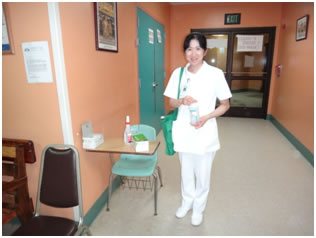
It has been a year since I have come to Palau as a JICA (Japan International Cooperation Agency) volunteer. I studied at a christian high school in Japan and learned the importance of living together with people around the world helping each other based on the spirit of philanthropy. I wished to help people not only in Japan but also in other countries through nursing and thus joined the Japan Overseas Cooperation Volunteer (JOCV) program.
Currently, I am working as a nurse at Belau National Hospital, the biggest hospital in the country with about 90 beds. My task is to support the hygienic care of the hospital by preventing infection. Along with my colleagues, I place hand disinfectant alcohol around the hospital and check the hygiene environment every day.
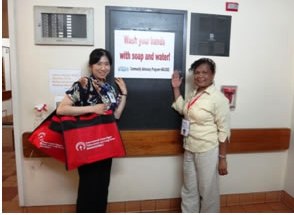
The first thing I noticed at Belau National Hospital is that it has a certain amount of equipment and supplies but is very short of staff, including nurses. As there are not many nurses, family members of the inpatient accompany the inpatient around the clock. And since there are no care facilities, once the medical treatment is finished, all patients go back to their own homes. So, while hospitalized and after discharged, it is always the family who takes care of the patients and support their daily lives. Some families have no experience in taking care of sick people and I realized they often do not know how to look after the patients and are sometimes very confused. Seeing this situation, I decided to show the families how to practice hygienic care, which helps the patients’ recovery, and daily life support such as changing of position for the bedridden. Among all, hygienic care can prevent infection and is critical for medical treatment to be effective. These days I have actually seen many patients in Belau National Hospital that became dramatically well by keeping their bodies clean.
At the hospital, I show the patients’ families how to take care of the patients and explain the methods, objectives, and necessity of the care. I am hoping that more and more nurses understand that infection care is not just disinfecting your fingers and hands or cleaning the environment but also something that is done through actual caring the patients.
In Japan, I worked as a nurse at the brain nerve surgery ward. I used to practice daily movements with the patients so that the patients who had operations or those with handicaps could return to their normal life as much as possible. In Palau, I practice these movements along with the patients’ families. Through these experiences with the patients and their families, I found that Palauan people have really strong bonds with their families and relatives, and cherish the respect to the elder people such as their parents, grandparents, aunts and uncles. This is a wonderful thing.
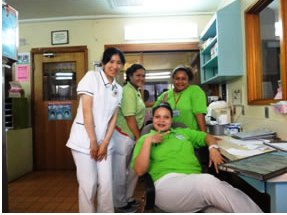
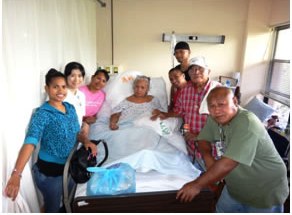
I am home-staying in Palau with a Palauan family and sometimes cook Japanese cuisine for them. Before I came here, I didn’t know that Palauan people like Japanese food and Japanese ways of cooking. I have made chirashi-zushi (sushi rice mixed with seafood, eggs, nori, etc.), niku-jaga (Japanese stew with beef and potatoes), oshiruko (sweet red bean soup with small rice cakes), onigiri (rice balls), soba (buckwheat noodles), chawan-mushi (Japanese egg pudding), etc. and every time my host mother is very happy and impressed with my cooking.
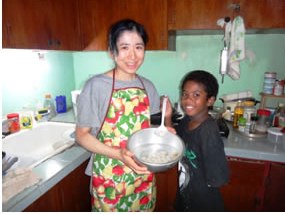
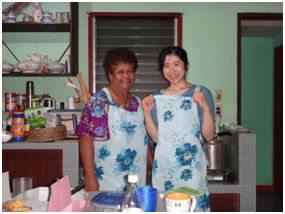
I am willing to look after Palauan patients, along with my colleagues and family and wish to enjoy good relationship and interaction with the Palauan people.
©Embassy of Japan in the Republic of Palau
P.O. Box 6050 Koror, Republic of Palau 96940

